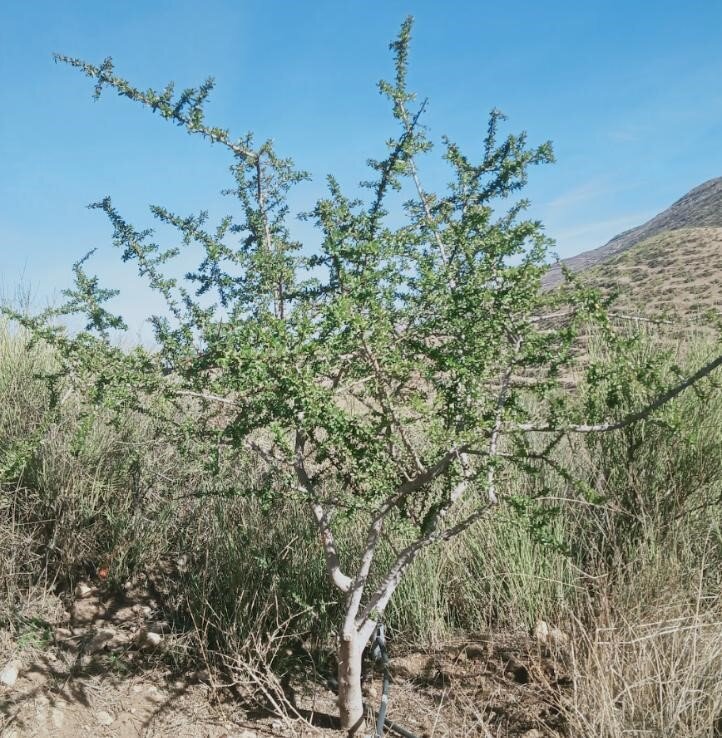By Aya El Majdoubi and Chloe Cordeiro | HAF Interns
Argan tree forests in central and western Morocco cover 850,000 hectares and are spread throughout eight provinces: Safi, Essaouira, Agadir, Tiznit, Sidi Ifni, Guelmim, Chaichaoua, and Taroudant. They represent the final line of defense against desertification in the area. Crops are rapidly declining in productivity due to rising temperatures and insufficient rainfall, forcing farmers to look for alternate sources of food and income.
Argan and carob trees have gained appeal with farmers due to their drought resilience. The development of strong, water-efficient trees has been aggressively encouraged by the High Atlas Foundation (HAF), and the argan tree is annually cultivated in nurseries and distributed to farmers.
In the Safi province, HAF and FRÉ Skincare supported a local community initiative in 2023 and planted 40 hectares of argan and caper trees. This project aims to stop desertification, safeguard the ecosystem, and support sustainable economic opportunity. Because they produce income in the first year after planting, caper trees are particularly appealing.
This project supports national and international campaigns for the conservation of biodiversity, responsible utilization of water resources, and sustainable development in the face of climate change.
The Arganeraie was designated as Morocco's first Biosphere Reserve by UNESCO in 1998 in appreciation of the argan tree's distinctive cultural, social, and economic significance. International Argan Day – May 10 – was established by the UN General Assembly in 2021.
One liter of argan oil is currently valued at 600 Moroccan dirhams. The project's goal is to revitalize the entire ecosystem; its focus, however, goes beyond argan oil extraction. The low-maintenance and extremely profitable caper plant has become a mainstay for Safi farmers.
Many farmers in the area seek to imitate Khatazakane, which combines these two well-liked plants, and its success. HAF is considering expanding the project to arid and semi-arid regions of Morocco, particularly in the provinces of Safi and Youssoufia.
With support from institutions, cooperatives and communities in these areas actively participate in developing and implementing these projects. The National Agency for Water and Forests is one of the initiative’s important partners, illustrating the multifaceted goals that address economic, social, and environmental issues. This partnership ensures that project activities are included in larger national and international strategies for sustainable development and climate resilience.
Project reports on GlobalGiving are posted directly to globalgiving.org by Project Leaders as they are completed, generally every 3-4 months. To protect the integrity of these documents, GlobalGiving does not alter them; therefore you may find some language or formatting issues.
If you donate to this project or have donated to this project, you can receive an email when this project posts a report. You can also subscribe for reports without donating.
Support this important cause by creating a personalized fundraising page.
Start a Fundraiser